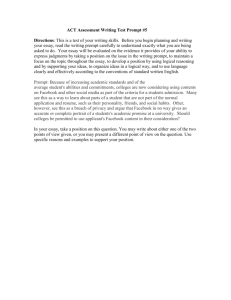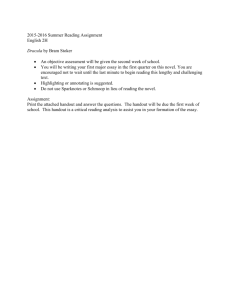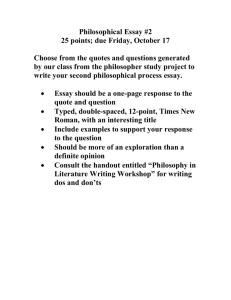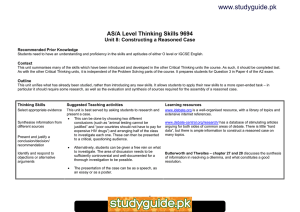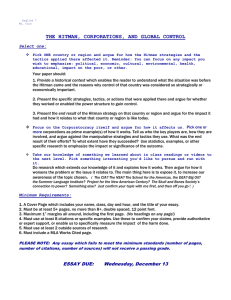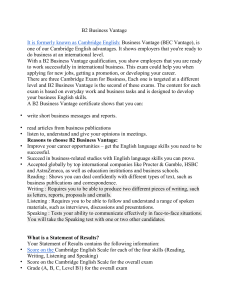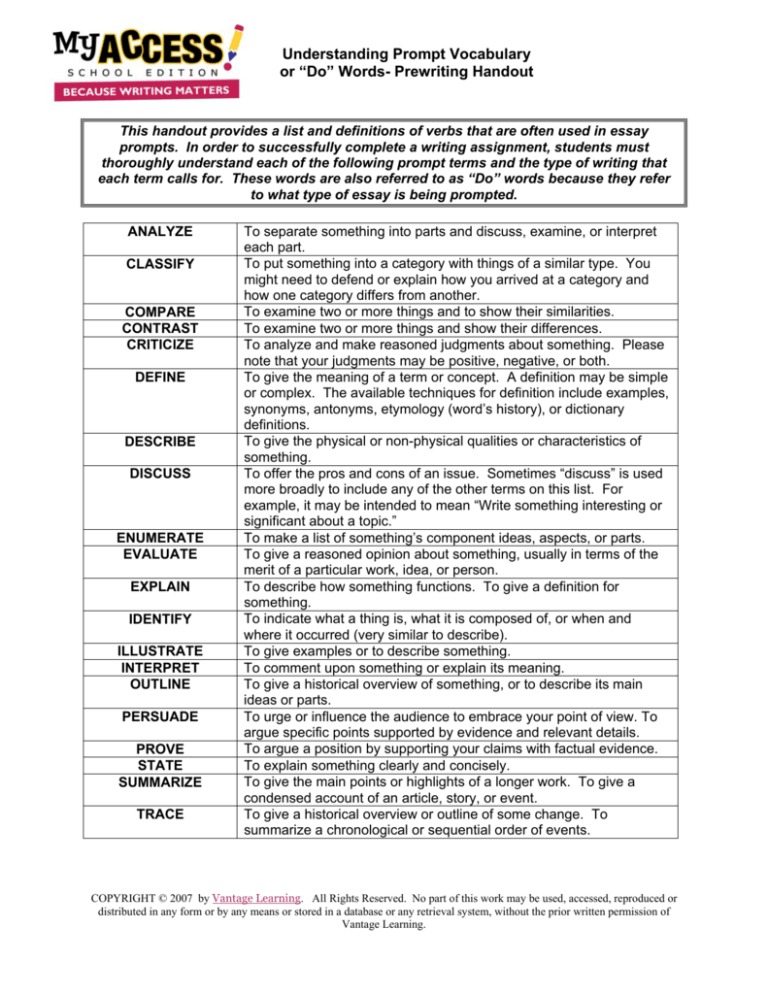
Understanding Prompt Vocabulary
or “Do” Words- Prewriting Handout
This handout provides a list and definitions of verbs that are often used in essay
prompts. In order to successfully complete a writing assignment, students must
thoroughly understand each of the following prompt terms and the type of writing that
each term calls for. These words are also referred to as “Do” words because they refer
to what type of essay is being prompted.
ANALYZE
CLASSIFY
COMPARE
CONTRAST
CRITICIZE
DEFINE
DESCRIBE
DISCUSS
ENUMERATE
EVALUATE
EXPLAIN
IDENTIFY
ILLUSTRATE
INTERPRET
OUTLINE
PERSUADE
PROVE
STATE
SUMMARIZE
TRACE
To separate something into parts and discuss, examine, or interpret
each part.
To put something into a category with things of a similar type. You
might need to defend or explain how you arrived at a category and
how one category differs from another.
To examine two or more things and to show their similarities.
To examine two or more things and show their differences.
To analyze and make reasoned judgments about something. Please
note that your judgments may be positive, negative, or both.
To give the meaning of a term or concept. A definition may be simple
or complex. The available techniques for definition include examples,
synonyms, antonyms, etymology (word’s history), or dictionary
definitions.
To give the physical or non-physical qualities or characteristics of
something.
To offer the pros and cons of an issue. Sometimes “discuss” is used
more broadly to include any of the other terms on this list. For
example, it may be intended to mean “Write something interesting or
significant about a topic.”
To make a list of something’s component ideas, aspects, or parts.
To give a reasoned opinion about something, usually in terms of the
merit of a particular work, idea, or person.
To describe how something functions. To give a definition for
something.
To indicate what a thing is, what it is composed of, or when and
where it occurred (very similar to describe).
To give examples or to describe something.
To comment upon something or explain its meaning.
To give a historical overview of something, or to describe its main
ideas or parts.
To urge or influence the audience to embrace your point of view. To
argue specific points supported by evidence and relevant details.
To argue a position by supporting your claims with factual evidence.
To explain something clearly and concisely.
To give the main points or highlights of a longer work. To give a
condensed account of an article, story, or event.
To give a historical overview or outline of some change. To
summarize a chronological or sequential order of events.
COPYRIGHT © 2007 by Vantage Learning. All Rights Reserved. No part of this work may be used, accessed, reproduced or
distributed in any form or by any means or stored in a database or any retrieval system, without the prior written permission of
Vantage Learning.



